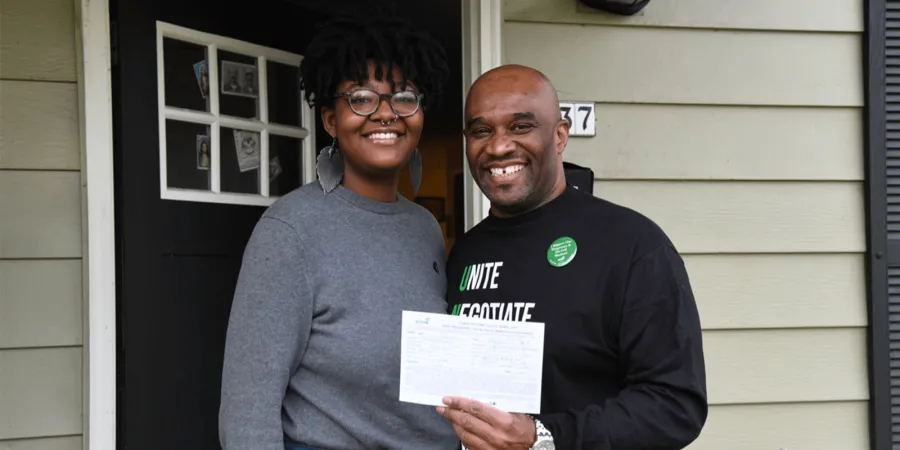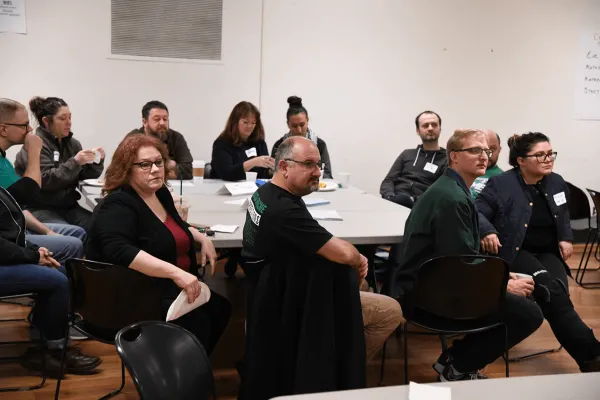Behavioral Health Members Are Becoming AFSCME Strong in Oregon

Oregon behavioral health workers connected with each other and built power during a recent AFSCME Strong blitz, which was part of a broader national effort to bring together workers in that industry so they can jointly fight for their patients and their communities.
The blitz – which gave AFSCME members a chance to meet other behavioral health workers who work for local governments or private providers – came after sustained organizing efforts last year through AFSCME Council 75 (Oregon) and the United We Heal campaign.
At 101 events across the state in January, Council 75’s weeklong blitz engaged 1,700 members, who did everything from talking to co-workers about the difference joining a union makes, to becoming active in their union, to increasing membership. Members also visited with nonunion workers who are interested in joining together through AFSCME.
“For someone who is new to this like me, it was just amazing to meet so many of my fellow members and understand how we all play a part in building a strong AFSCME,” said Anrey Wang, a mental health counselor at an outpatient facility with Cascadia Behavioral Healthcare in Portland.
Last year, he and hundreds of his co-workers voted overwhelmingly to join with AFSCME. Now that he is a member, Wang has joined the bargaining team, attended town halls and taken advantage of other opportunities, including the January blitz, to become involved in his union.
“I was able to share my experiences with nonunion workers who are also behavioral health workers and stress how, through AFSCME’s United We Heal campaign, we are working towards improving issues that were impacting client care where I work,” said Wang.
Worker and patient safety, high caseloads, low wages and poor benefits, inadequate training and among the raft of problems facing behavioral health workers in Oregon and elsewhere.
During the blitz, members knocked on almost 1,200 doors during house visits, inspiring dozens of non-dues-paying workers to sign up. Members also spread the word about Council 75’s new SMART Center and about upcoming training opportunities. Through one-on-one conversations with unorganized workers, new members like Wang identified potential workplace leaders and opportunities for further engagement and growth.
“I was so excited to meet other AFSCME members from all sorts of different backgrounds and jobs but what I am going to remember the most if the energy that was in the room from people who just couldn’t wait to talk about our union,” said Wang.
“I really brought home for me that all of this is about more than just the one worksite or one set of issues. I know what I’m doing is going to improve the standards and conditions for behavioral health workers everywhere. And when you take part in a blitz like this you see that is what our AFSCME family is doing at worksites and jobs and in communities everywhere we are.”
Learn more about the United We Heal campaign.

